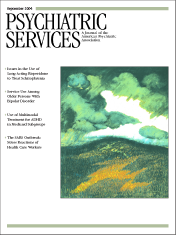Anything But Straight: Unmasking the Scandals and Lies Behind the Ex-Gay Myth
Wayne R. Besen's Anything But Straight: Unmasking the Scandals and Lies Behind the Ex-Gay Myth chronicles the so-called ex-gay movement's 30-year history. In many ways, this is a story of cultural developments after 1973, when the American Psychiatric Association (APA) stopped classifying homosexuality as a mental disorder in the Diagnostic and Statistical Manual.
Before that time, APA meetings routinely featured programs on how to "treat" and "cure" homosexuality. In 1970 and 1971, gay and lesbian activists disrupted those events. The protests led to formal meetings with APA officials as well as deliberations and debates in APA's scientific committees on the question of what constituted a psychiatric illness. In 1973, APA's board of trustees voted to remove homosexuality from DSM-II.
Those who were opposed to this move petitioned APA to hold a membership referendum to put homosexuality back in. However APA's membership voted to support the removal. After their loss, clinicians who pathologized homosexuality—today referred to as "reparative therapists"—were gradually marginalized from mainstream scientific journals and meetings. However, they found new audiences elsewhere. Their clinical theories meshed with the political agenda of social-conservative groups that opposed normalizing same-sex relationships. What eventually emerged was a faith-healing movement based on biblical values trying to cloak itself with a scientific mantle of respectability—not altogether unsurprising given that the political groups supporting "reparative" therapies also promote and endorse the pseudo-science of "creationism."
Anything But Straight details some of the confusing linguistic conflations of science, religion, and politics. For example, many in the ex-gay movement subscribe to a "name and claim theology…[meaning that one] may not be completely healed [or heterosexual] now, but by claiming that [one is] healed [that is, calling oneself ex-gay]…God will eventually reward that faithfulness and cause the actual healing." In other words, to be ex-gay, one does not have to have a heterosexual arousal system; one only has to pray for one.
The shaky ground on which ex-gay identities are constructed is described in the book's first section, in which Besen details the tragic, personal foibles of prominent ex-gay leaders who either had "homosexual lapses" or publicly went back to being gay. The second section introduces reparative therapists, questioning their character, their psychoanalytic theories, and their cure rates. The third section focuses on religious right organizations and operatives who use homosexuality as a wedge issue for personal and political gain.
Besen persuasively argues that reparative therapists and conservative religious groups use the ex-gay movement to counter growing public acceptance of lesbians and gays. Because this acceptance is based on a belief that homosexuality is "biological"—by which most people mean "immutable"—ex-gays, reparative therapists, and the religious right contend that people are not "born gay"; that homosexuality is a sick "behavior," not an "identity"; and that "homosexuals" can change if they try hard enough. As documented in Anything But Straight, this is not just a clinical or religious position; it is also a political argument against lesbian and gay civil rights.
Besen—formerly associate director of communications for the Human Rights Campaign Fund, a nonpartisan lobbying group for lesbian and gay civil rights—spent four years monitoring ex-gay ministries. Clearly, he was distressed and angered by what he found. Consequently, even sympathetic readers may find the polemical and ad hominem tone a distraction from the book's substantial documentation and thoughtful analyses.
This book is recommended to clinicians who are interested in cultural beliefs about homosexuality as well as the interface between politics and clinical practice. I would also strongly recommend that anyone who is considering a visit to an ex-gay ministry or a sexual conversion therapist read this book first.
Dr. Drescher chairs the American Psychiatric Association's committee on gay, lesbian, and bisexual concerns and is author of Psychoanalytic Therapy and the Gay Man.



